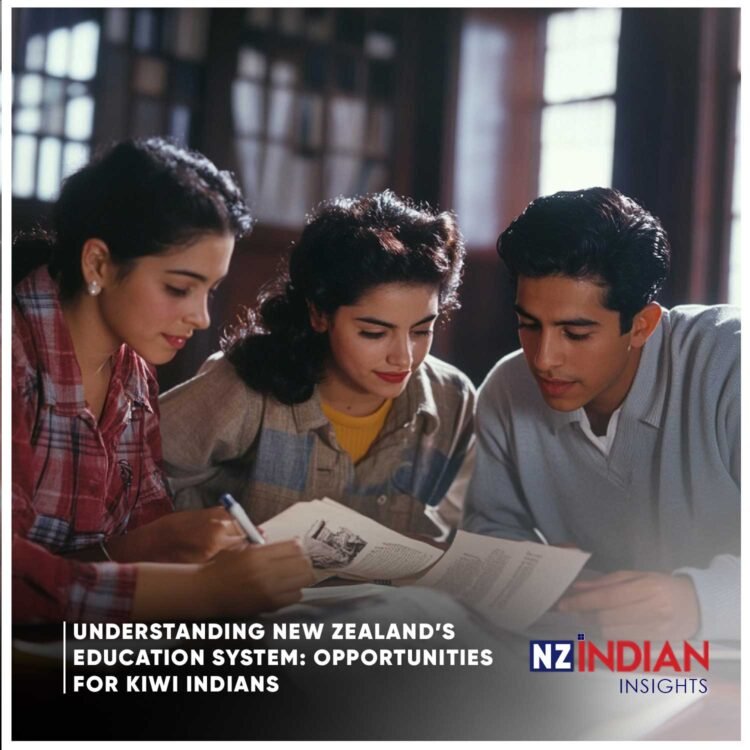Education is one of the cornerstones of settling and thriving in New Zealand. For Kiwi Indian families, understanding the local education system can influence career paths, cultural integration, and long-term planning for children.
Key aspects of the education system:
- Primary and secondary schooling: New Zealand offers state, integrated, and private schools. Curriculum emphasizes creativity, critical thinking, and holistic development.
- Tertiary education: Universities, polytechnics, and vocational institutes provide a wide range of courses in technology, healthcare, business, and arts.
- Cultural inclusivity: Schools encourage multicultural programs, supporting children from diverse backgrounds to feel included while preserving their heritage.
Why it matters for Kiwi Indians:
- Language and cultural balance: Families can support children in maintaining native languages while adapting to English-medium education.
- Extracurricular opportunities: Sports, arts, and cultural clubs allow children to build confidence and social networks.
- Higher education pathways: Understanding qualifications and credit recognition helps parents guide children toward local or international careers.
Fact highlights:
- New Zealand ranks consistently in the top 30 globally for quality of education.
- Multicultural programs in schools encourage inclusivity and foster community cohesion.
- Tertiary institutions have partnerships with international universities, providing global exposure.
Navigating the education system effectively empowers families to make informed choices, ensure children’s growth, and maintain cultural identity in a multicultural environment.
How does your family engage with the education system in New Zealand? Share here: submit your opinion.
FAQs:
What types of schools are available in New Zealand?
New Zealand offers state, integrated, and private schools that focus on creativity, critical thinking, and holistic development.
How can Kiwi Indian families balance language and culture in education?
Schools promote multicultural programs, and families can support children by maintaining native languages while adapting to English-medium education.
What higher education options are available in New Zealand?
Universities, polytechnics, and vocational institutes offer courses in technology, healthcare, business, arts, and have global partnerships for international exposure.
Why is understanding the education system important for long-term planning?
Knowledge of qualifications, credit recognition, and extracurricular activities helps families guide children toward career growth while preserving cultural identity.




















